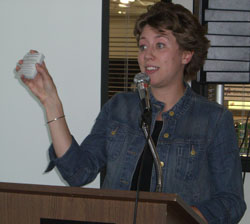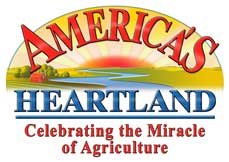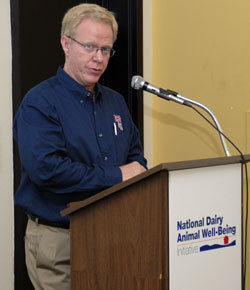 Osborn & Barr is now the marketing firm of choice for Becker Underwood. The global leader in bio-agronomic development has named Osborn & Barr its agency of record.
Osborn & Barr is now the marketing firm of choice for Becker Underwood. The global leader in bio-agronomic development has named Osborn & Barr its agency of record.
“When we initiated the search for a new agency of record, it was very important to select an agency with a winning track record of effective brand management and marketing communications within the agricultural market,” said Paul Holliday, Becker Underwood, Business Unit Head – Inoculants. “After a thorough search and analysis, we selected Osborn & Barr because of the agency’s in-depth knowledge and understanding of the agricultural market and their tremendous success in representing some of the most widely recognized brands in the industry.”
 Osborn & Barr’s expertise will assist in increasing awareness of the innovative solutions Becker Underwood’s products offer the agriculture market. “Becker Underwood’s objective is to grow market share and build brand awareness among growers and retailers in both the United
Osborn & Barr’s expertise will assist in increasing awareness of the innovative solutions Becker Underwood’s products offer the agriculture market. “Becker Underwood’s objective is to grow market share and build brand awareness among growers and retailers in both the United
States and Canada,” said Steve Barr, chief executive officer of Osborn & Barr. “Osborn & Barr will partner with Becker Underwood to develop and implement initiatives that fulfill the company’s goals.”
Becker Underwood, headquartered in Ames, Iowa, employs approximately 317 employees globally. For more than two decades, the company has provided unique and valuable products for niche markets in 60 countries, including agriculture, turf and landscaping, horticulture, and lawn and garden. Becker Underwood strives to develop new technologies and products through continuous scientific research that naturally improve customers’ end products, whether it’s higher crop yields or a more visually appealing golf course.
 The Badger chapter of the National Agri-Marketing Association held a meeting here at Expo and members from other chapters around the country were invited to attend.
The Badger chapter of the National Agri-Marketing Association held a meeting here at Expo and members from other chapters around the country were invited to attend.



 American farmers and ranchers who not only dedicate their lives to their craft, but who also play vital parts in furthering the U.S.’s developing agriculture industry will again be featured on T.V. for the third season of
American farmers and ranchers who not only dedicate their lives to their craft, but who also play vital parts in furthering the U.S.’s developing agriculture industry will again be featured on T.V. for the third season of  The
The  The
The 
 I’m not the only farm podcaster here at World Dairy Expo.
I’m not the only farm podcaster here at World Dairy Expo. Osborn & Barr is now the marketing firm of choice for
Osborn & Barr is now the marketing firm of choice for  Osborn & Barr’s expertise will assist in increasing awareness of the innovative solutions Becker Underwood’s products offer the agriculture market. “Becker Underwood’s objective is to grow market share and build brand awareness among growers and retailers in both the United
Osborn & Barr’s expertise will assist in increasing awareness of the innovative solutions Becker Underwood’s products offer the agriculture market. “Becker Underwood’s objective is to grow market share and build brand awareness among growers and retailers in both the United This morning at World Dairy Expo a producer-led coalition of dairy groups and companies announced the
This morning at World Dairy Expo a producer-led coalition of dairy groups and companies announced the  In case you’d like a little more dairy news today I thought you might enjoy this. A quiet place to get away from the crowd at World Dairy Expo is the
In case you’d like a little more dairy news today I thought you might enjoy this. A quiet place to get away from the crowd at World Dairy Expo is the  It’s been a busy morning of interviews here at World Dairy Expo. Cindy and I are now editing away here in the media room. We’re shooting interviews on video from which we can take the audio so we can feed the
It’s been a busy morning of interviews here at World Dairy Expo. Cindy and I are now editing away here in the media room. We’re shooting interviews on video from which we can take the audio so we can feed the